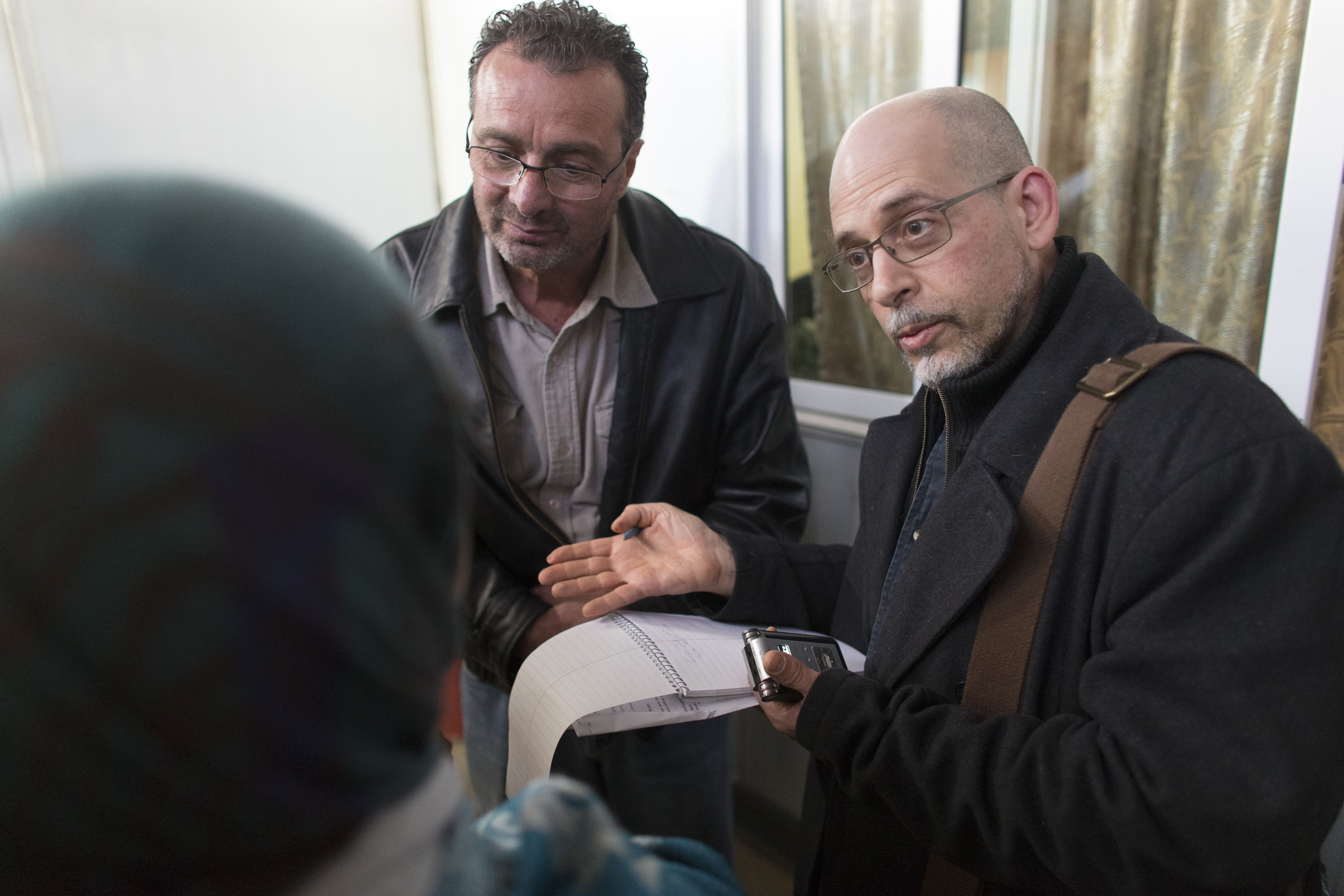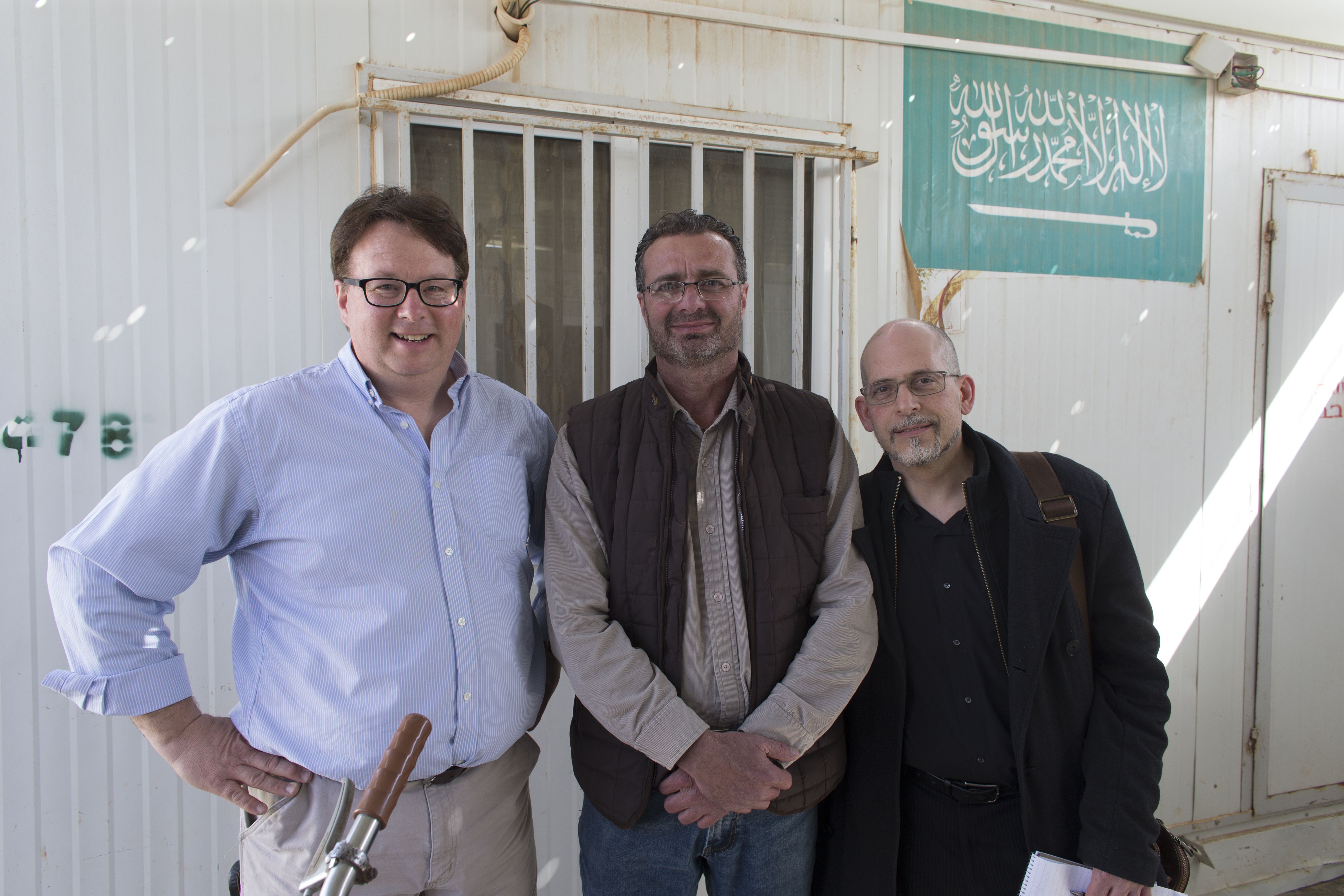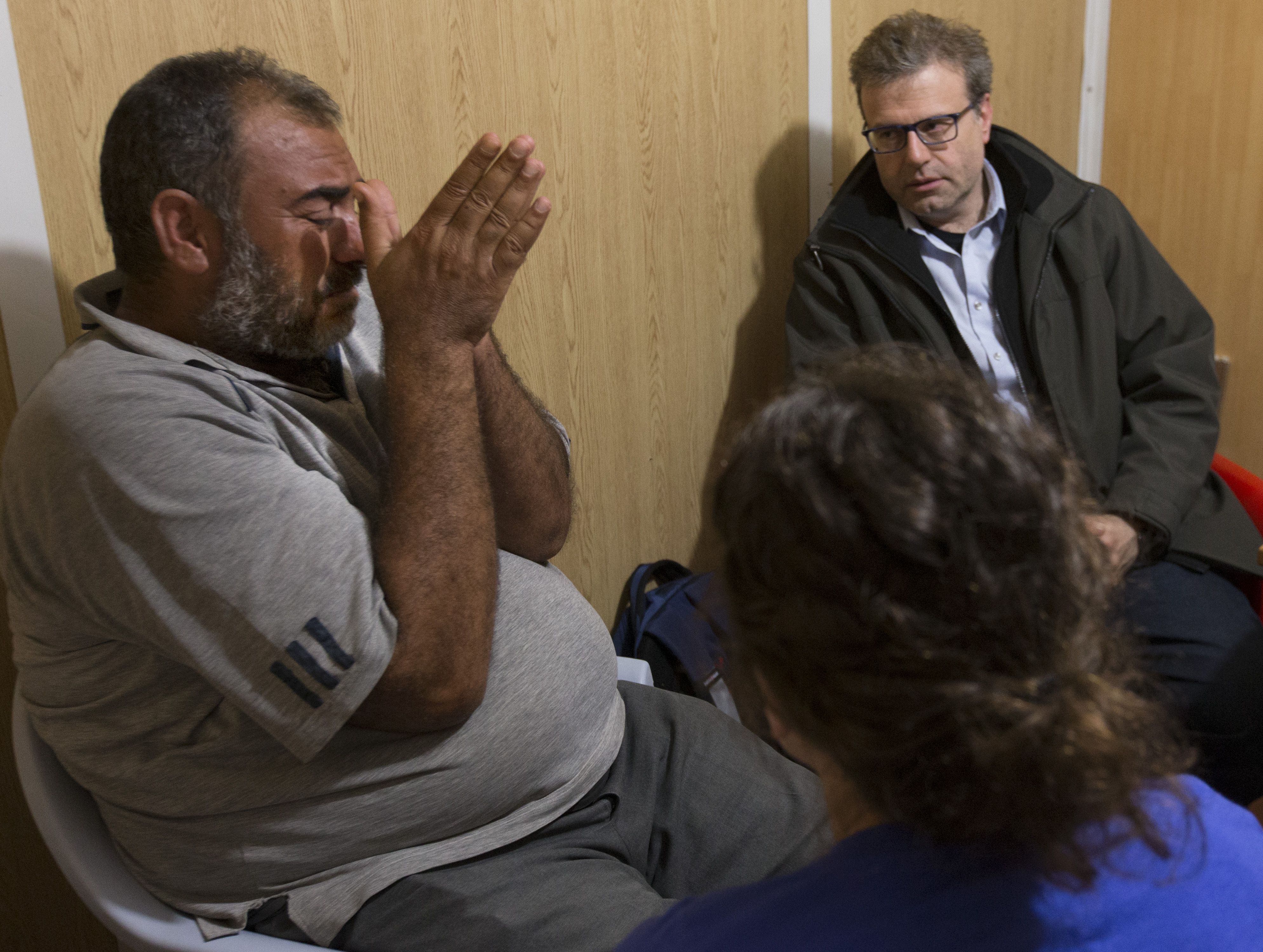ZAATARI REFUGEE CAMP, Jordan—If we succeed in telling a compelling story, Ihab Muhtaseb will deserve much of the credit, even though he will not have a byline. In fact he isn’t even a journalist.
He is a fixer.
Most media organizations use fixers when they are doing international reporting. They know the language, the local customs and can handle details that allow journalists to focus on reporting, not logistics.
Ihab’s first tasks for us took place before we ever met. We needed a permit to enter the refugee camp. No permit, no story.
He knew to whom we needed to send the letter seeking the permit. Later, he picked the permit up before we arrived, so we wouldn’t miss a day of reporting.
Our first day at the camp could have been a disaster without him. One of the many agencies didn’t receive a copy of some paperwork, but he smoothed things over in Arabic and we got to work after a slight delay.
He’s worked with media organizations from around the world and later this week is working with a German television network to secure an interview with a now 14-year-old boy who was beaten by Syrian police five years ago. That incident sparked the revolt.
I rode with him three to four hours roundtrip to the refugee camp for four days. We talked about topics ranging from what it means to be a Muslim to the 20 years he lived in the United States.
Although he is Jordanian, Ihab was born in Palestine. He is a U.S. citizen and moved back to Jordan more than a decade ago.
He was at reporter Mark Johnson’s side providing translation as a Syrian man described the torture he endured for seven months.
He told me about the shawarma stand in the camp that was so good I ate there twice and did a video story about it.
I will probably never see him again, but after four long days of working together he is no longer a fixer. He is a friend.





